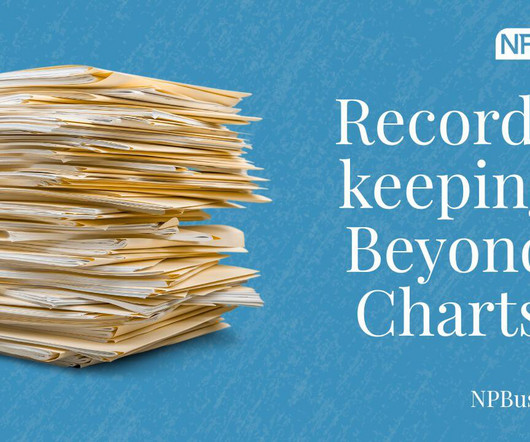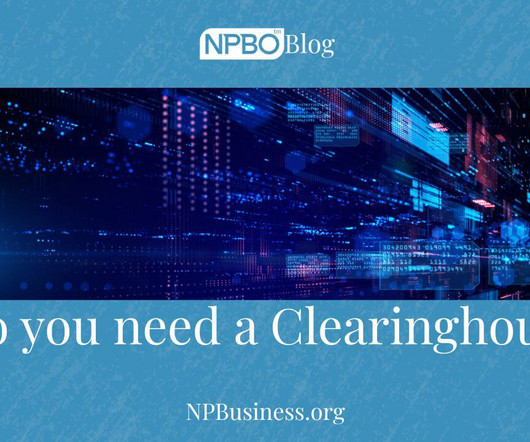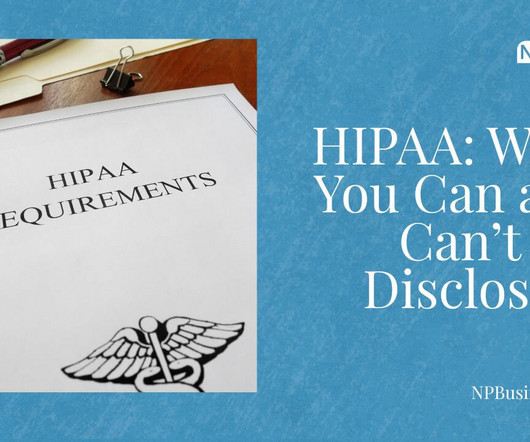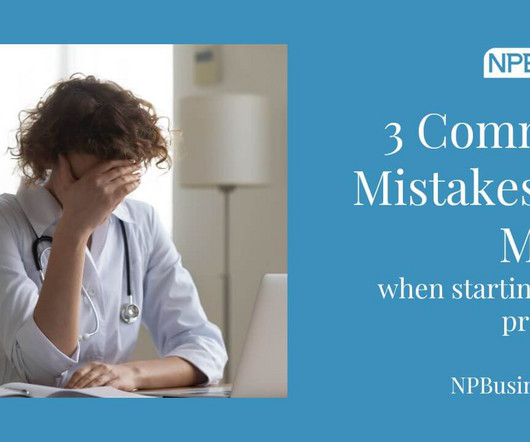Record-Keeping Beyond Charts
Nurse Practitioners in Business
APRIL 24, 2025
HIPAA-related documents, such as privacy notices and release-of-information forms, also fall under this category. Financial Records Every business is required to track and record all income and expenses. HIPAA Documentation Keep signed patient acknowledgments of your Notice of Privacy Practices.















Let's personalize your content